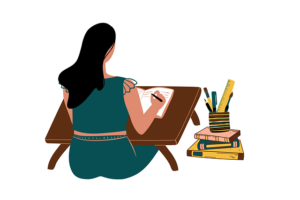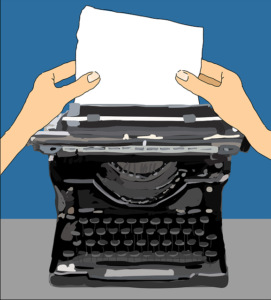ETHICAL POLICY
Here is our ethical policy for the authors. The researchers and authors should strictly abide by the following policy.
1. Research Results:

• Authors must not fabricate, falsify or misrepresent data or results. They should strive to be objective, unbiased and truthful in all aspects of their work.
• Authors must be honest in making claims for the results and conclusions of their research. Making inflated claims for a project interferes with the objective evaluation of its results and applications, and can lead to an unfair and wasteful distribution of resources.
• Authors should strive to avoid mistakes in research and exercise due diligence in presenting high quality work for publication. They should critically assess the likelihood of experimental, methodological and human errors and avoid self-deception and bias. Where possible they should conduct an internal review to assess the validity of their work before publication.
2. Authorship

• When determining the credit for a piece of work, authors should ensure that all those who have made a significant contribution are cited as co-authors. Other individuals who have contributed to the study in a lesser capacity should be acknowledged, but not cited as authors.
• It is the corresponding author’s responsibility to ensure that all named authors have approved the submitted version of the manuscript, agree to its submission and are willing to take appropriate responsibility for it.
• All authors should be consulted about any subsequent changes to authorship (e.g. the list of authors) during the publication process, and it should be made clear to the journal that they have given their consent.
• Articles should include a full list of the current institutional affiliations of all authors, both academic and corporate.
• All sources of financial support for the project should be disclosed in the article. All authors and co-authors are required to disclose any potential conflict of interest when submitting their article (e.g. employment, consulting fees, research contracts, stock ownership, patent licences, honoraria, advisory affiliations, etc.). If the article is subsequently accepted for publication, this information should be included in an acknowledgments section.
3. Referencing, Citation and Novelty

• Authors have a responsibility to acknowledge the work of others used in their research and to cite publications that have influenced the direction and course of their study.
• Information obtained in private correspondence or conversation should only be used with the explicit permission of the individuals involved. Information obtained whilst providing confidential services, such as refereeing research articles or grant applications, should not be used without permission of the original author.
• All sources for the article must be clearly disclosed and permissions obtained from the original authors (and original publishers if they hold the copyright) for any figures or significant extracts that are to be reproduced or quoted. (Collection of such permissions is the responsibility of the authors.)
4. Plagiarism/Self-plagiarism

• Submitted articles must be the authors’ own work. Plagiarism constitutes unethical scientific behaviour and is never acceptable. Plagiarism ranges from the unreferenced use of others’ ideas to submission of a complete paper under ‘new’ authorship.
• Duplicate publication (sometimes called ‘self-plagiarism’) is the production of multiple papers with the same, or essentially the same, content by the same authors and is viewed as unacceptable. Submitted research articles must be novel and original.
• However, in these cases authors should consult with the journal staff before submission. In all instances, articles must clearly cite their sources and present some new contribution to the published literature otherwise such articles will be rejected.
• Multiple publications arising from a single research project should be clearly identified as such and the primary publication should be referenced. Translations and adaptations for different audiences should be clearly identified as such, should acknowledge the original source, and should respect relevant copyright conventions and permission requirements. If in doubt, authors should seek permission from the original publisher before republishing any work.
• It is also unethical to submit the same, or essentially the same, article to a second primary research journal whilst it remains under active consideration by another.
5. In case of error:
• When an error is discovered in published or submitted work, the mistake should be admitted and a corrigendum, erratum or retraction should be published.
